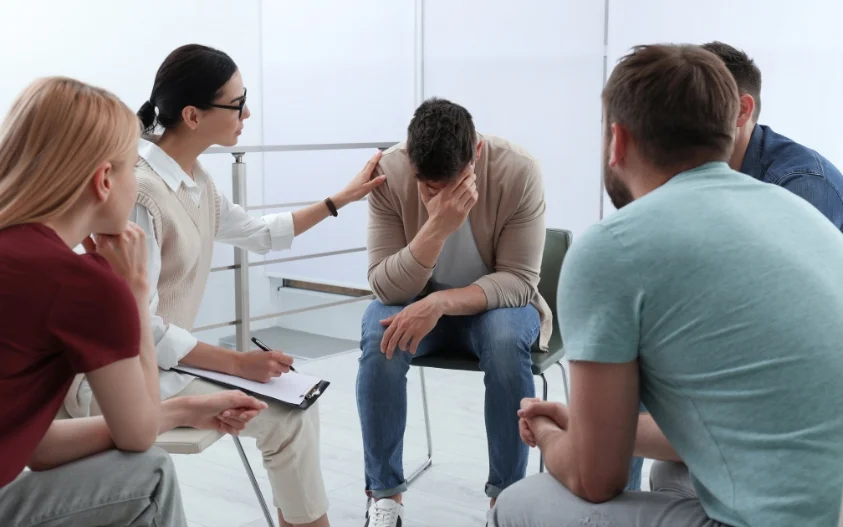24/7 Helpline:
(866) 899-221924/7 Helpline:
(866) 899-2219
Learn more about Morphine Rehab centers in Sevier County
Other Categories in Sevier County

Other Insurance Options

Absolute Total Care

Carleon

Anthem

Health Partners

EmblemHealth

American Behavioral

Optima
Beacon

Multiplan

PHCS Network

WellCare Health Plans

Optum

MVP Healthcare

Sutter

Providence

Access to Recovery (ATR) Voucher

Aetna

Magellan Health

United Health Care

Cigna

Pasadena Villa – Smoky Mountain Lodge
Pasadena Villa–Smoky Mountains is an integrative, 12 step focused drug and alcohol rehab for adults ...

Peninsula Behavioral Health – Outpatient
Peninsula Behavioral Health – Outpatient is a private rehab located in Sevierville, Tennessee. Penin...

Life Changers Outreach – Apostolic Headquarters & Training Center
Life Changers Outreach, in Pigeon Forge, Tennessee, offers long term residential care for adolescent...

English Mountain Recovery
English Mountain Recovery offers a gender specific alcohol and drug addiction treatment rehab recove...













































Crossroads Counseling Center
Crossroads Counseling Center is a private rehab located in Sevierville, Tennessee. Crossroads Counse...

Life Changers Outreach – Women’s Center Tennesse
Life Changers Outreach–Women’s Center Tennessee is a faith-based drug and alcohol rehab for adolesce...

Life Changers Outreach – Tennessee Men Center
Life Changers Outreach – Tennessee Men Center, located in Kodak, Tennessee, is a one year disciplesh...

AA – Alcoholics Anonymous
AA – Alcoholics Anonymous is a non-profit rehab located in Sevierville, Tennessee. AA – Alcoholics A...










